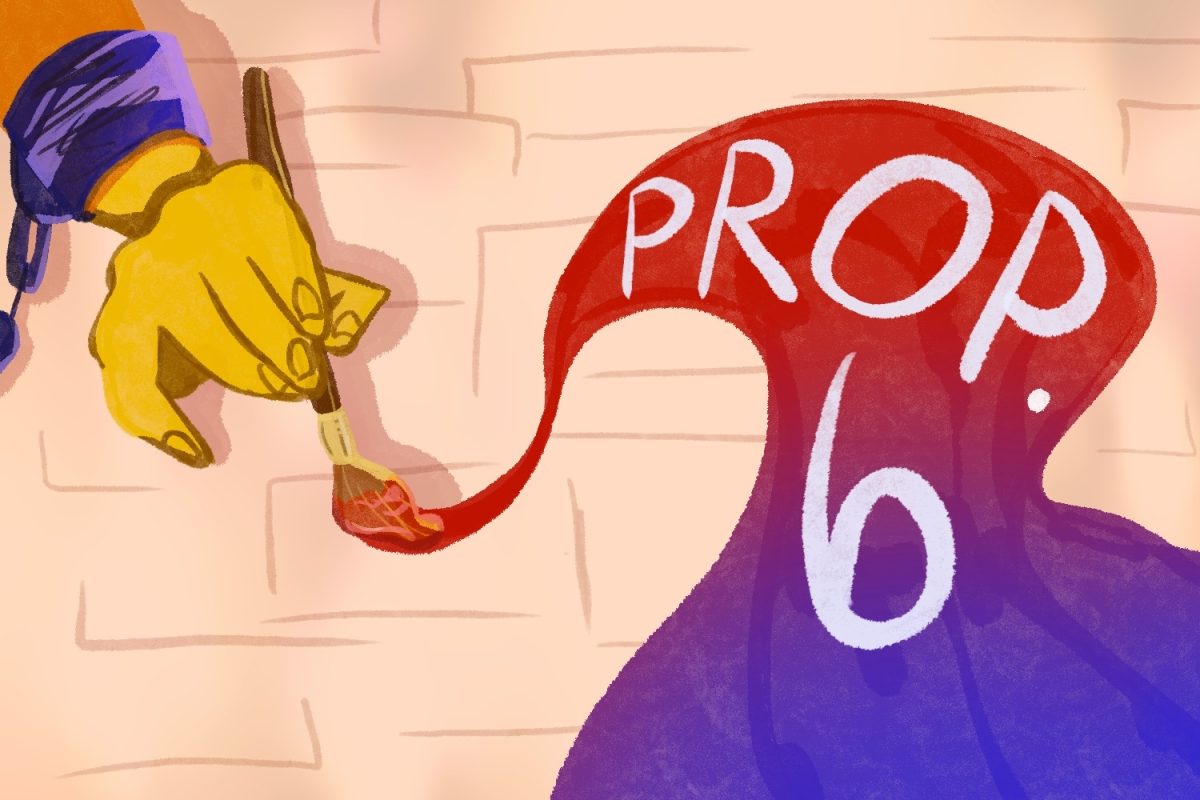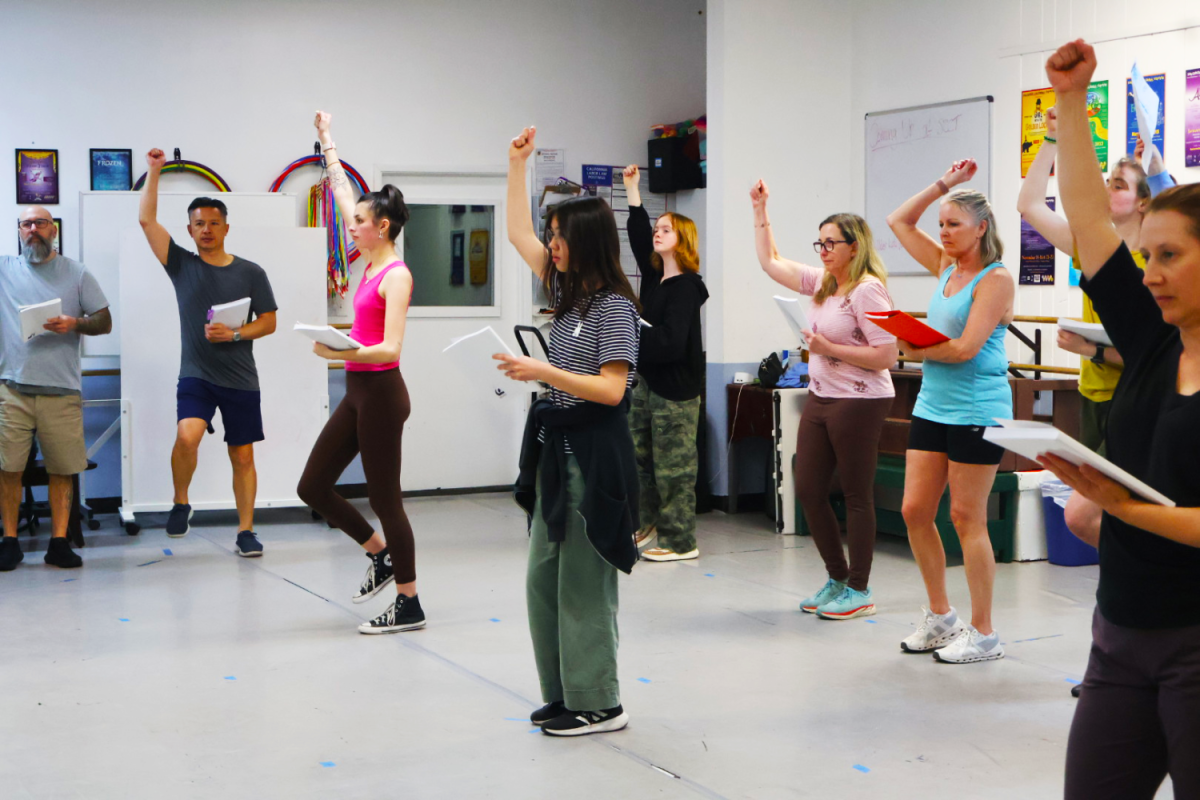California’s Proposition 6 was one of 10 statewide ballot propositions included on the 2024 election ballot. Proposition 6 would amend the California Constitution to prohibit both slavery and involuntary servitude in prisons as punishment.
For the proposition to be passed, it needed a majority yes vote from California voters.
During its campaign, the proposition received endorsements from civil rights and social justice organizations, as well as other supporters like Assemblymember Lori Wilson who sponsored the bill that put it on the ballot.
Despite no organized opposition against Prop 6, it did not have the necessary votes to pass, with 54.65% of voters rejecting Prop. 6. This means that in California, involuntary servitude will continue to be allowed to be used in prisons as a form of penalty for a crime.
Samual Nathaniel Brown is the founder and director of the 10P Program and the original author of Proposition 6. He started writing the initiative in 2020.
“Proposition 6 is a bill that has a historical impact. Slavery is something that we’ve been trying to end for a long time. Involuntary servitude and slavery have been going on since the 13th Amendment was incorporated,” Brown said.
Proposition 6 references the 13th Amendment to the United States Constitution that allows slavery to be permissible for a crime, thus making mandatory prison labor legal in any state that has not amended its constitution to abolish it.
“While everyone was under the guise that slavery ended, it never ended, they just put it behind prison walls,” Brown said. “If a person commits a crime and they go through the process, once found guilty, they can be enslaved.”
With the 13th Amendment, those who are incarcerated are constrained to working for companies for as little as 16 cents an hour.
“Right now, there are over 4,000 well-known organizations that use prison labor. Everything from LensCrafters to McDonald’s, Burger King, Walmart, Target, all use prison labor. I can go on and on of these companies that use prison labor, and you wouldn’t even know it,” Brown said.
Furthermore, according to the Public Policy Institute of California, a disproportionate amount of those who are imprisoned are Black and Latino.
“Today, you have corporations investing in so-called ‘tough on crime legislation’ that they say is to protect the public. But it’s not really to protect the public, it is to get cheap labor forces behind prison walls, and in doing so, they decimate communities of color,” Brown said.
Previously, Article One Section Six of California’s Constitution stated, “Slavery is prohibited. Involuntary servitude is prohibited except to punish crime,” allowing for a loophole of incarcerated servitude to exist in prisons as punishment for a crime.
“What involuntary servitude looks like right now inside of prisons is that exploitation of labor is prioritized. You come in and you’re told what kind of job you’ll do. In most cases, people are not properly trained, they don’t have the appropriate protective equipment, and they are paid cents per hour,” said Carmen-Nicole Cox, the secretary of the Yes on Prop 6 campaign.
Recently, the pay in prisons has doubled, with the minimum going from 8 to 16 cents an hour. While Proposition 6 will not change the pay scale, it highlights the low wages earned in prison work.
The current conditions of the California Constitution can also lead to effects on mental health as people cannot get out of work even if they are going through challenging situations, forcing them to continue working under any circumstances.
Josh Pynoos is a spokesperson for the Anti-Recidivism Coalition, an organization that supports formerly and currently incarcerated people to end mass incarceration in California.
“Involuntary servitude can contribute to feelings of powerlessness, dehumanization, and despair among incarcerated individuals. Many report feeling that their labor is exploited, undervalued, and contributes to maintaining a system that oppresses rather than rehabilitates them,” Pynoos said.
Not only that, but the current California amendment makes it that if someone to misses a day of work, they have to be written up.
Esteban Nunez is the senior vice president at Actum LLC and started working with the Anti-Recidivism Coalition after being incarcerated eight years ago.
“When you get written up for refusing to work, you’re essentially confined to yourself for all but two hours a day. You’re not able to take part of rehabilitative programming; They limit the opportunities that you you can to have to call your family; They limit how much you can go to the store,” Nunez said.
One of these write-ups is referred to as a California Department of Corrections and Rehabilitation (CDCR) 115 or Rules Violation Report (RVR), which can impede an individual’s ability to work towards getting out of prison or lead to denials from the Board of Parole Hearings. These write-ups keep incarcerated individuals in a cycle of involuntary servitude rather than being able to enter other rehabilitative programs, overturning any progress they had made prior to the 115.
“All of my rehabilitative accomplishments, all of the programs that I took, all of the classes that I created, all of the college degrees that I achieved, all of the years that I stayed out of trouble, all of that would have been ruled irrelevant if I would have missed one day of work and they gave me that 115,” Brown said.
According to Cox, many people in California are unaware of the conditions inside prisons that are being funded by the taxes they pay. This leads to misconceptions and assumptions about what would happen if prisons got rid of involuntary labor in prisons.
One misconception is that Proposition 6 will lead to releasing people from prison.
“Proposition 6 has nothing to do with releasing people from prison. It would allow people who are incarcerated to choose whether or not they want to go into a program, get a job, or go to work without being punished,” Brown said.
Proposition 6 will allow people who are incarcerated to have more opportunities for rehabilitation and training.
“They’ll be able to focus on getting college educations and GED diplomas without being removed from their programs. They’ll be able to come home with certifications that they can utilize to get jobs, which increases employability and decreases recidivism,” Brown said.
According to Brown, another misconception is that once Proposition 6 is passed, no one in prison will work anymore.
“This is totally untrue. People in prison want to work because it gets them out of their cells,” Brown said. “Many people in prison want to work because working comes with benefits, like being able to spend more at the canteen, getting larger packages, and other benefits from working.”
“We’re not getting rid of work. People still want to be able to earn a little bit of money. They still want to be able to get out of their cells because if you’re not doing anything at all, you’re stuck in your cell,” Cox said.
Other advocates of Proposition 6 say that it will lead to more opportunities for rehabilitation rather than working.
“Rehabilitation should be the priority because that’s what promotes healing the people in incarceration and also increasing public safety. There are programs inside prison that allow people to face their traumas and develop the tools that they need to re-enter society and be contributing members. But those programs are overshadowed if the prison needs somebody to go pick up trash in the yard or clean dishes,” Brown said.
By prioritizing rehabilitation rather than punishment, Proposition 6 allows those who are incarcerated to focus on improving themselves and returning home from prison.
“Proposition 6 would create greater protections for incarcerated people, allowing them to attend rehabilitative and educational programs and giving them the ability to choose jobs that align with their rehabilitative goals,” Pynoos said. “Removing forced labor provides people with more control over their rehabilitation, which could improve outcomes and support a smoother transition to life outside prison.”

































